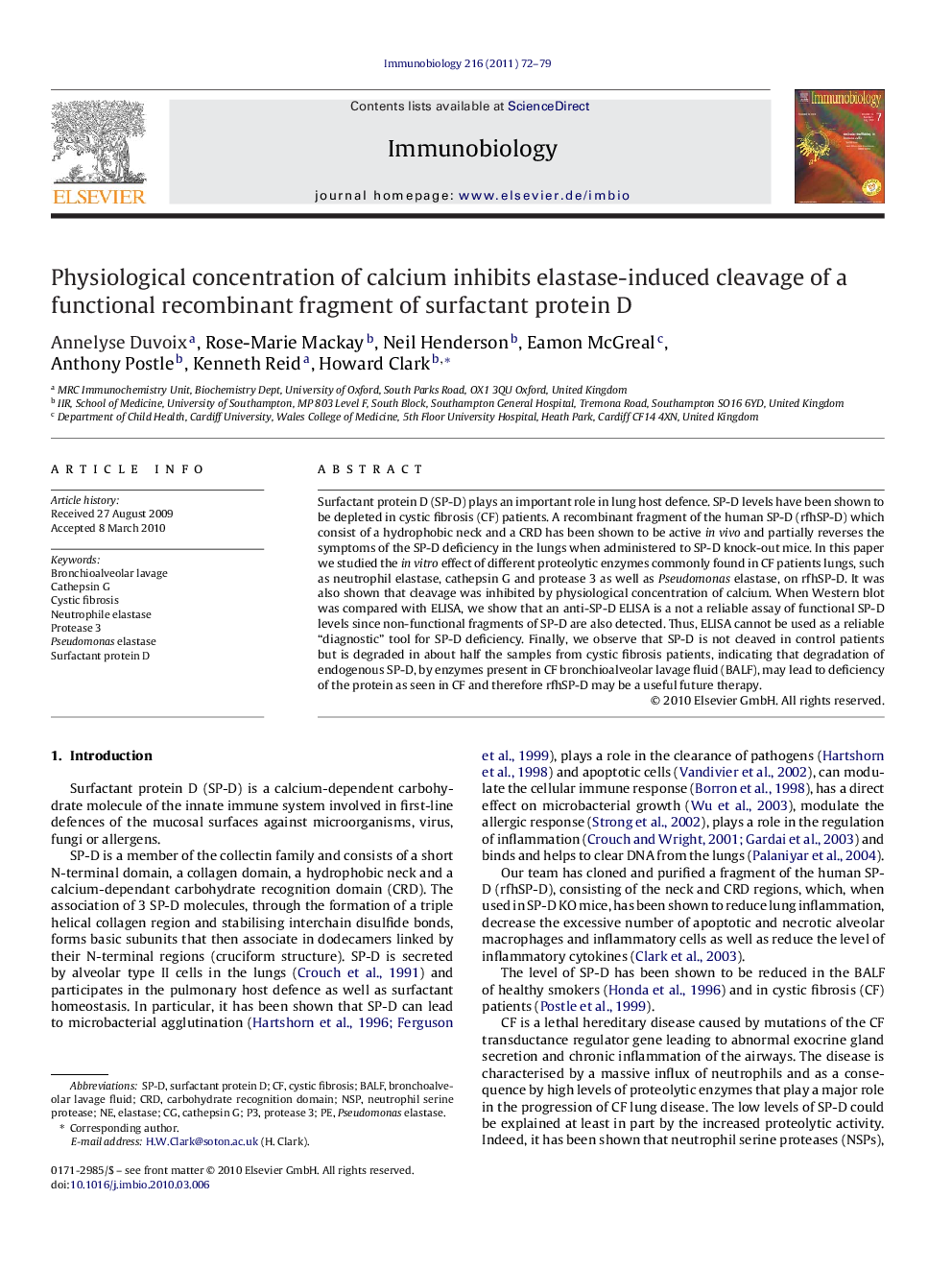| Article ID | Journal | Published Year | Pages | File Type |
|---|---|---|---|---|
| 2183547 | Immunobiology | 2011 | 8 Pages |
Surfactant protein D (SP-D) plays an important role in lung host defence. SP-D levels have been shown to be depleted in cystic fibrosis (CF) patients. A recombinant fragment of the human SP-D (rfhSP-D) which consist of a hydrophobic neck and a CRD has been shown to be active in vivo and partially reverses the symptoms of the SP-D deficiency in the lungs when administered to SP-D knock-out mice. In this paper we studied the in vitro effect of different proteolytic enzymes commonly found in CF patients lungs, such as neutrophil elastase, cathepsin G and protease 3 as well as Pseudomonas elastase, on rfhSP-D. It was also shown that cleavage was inhibited by physiological concentration of calcium. When Western blot was compared with ELISA, we show that an anti-SP-D ELISA is a not a reliable assay of functional SP-D levels since non-functional fragments of SP-D are also detected. Thus, ELISA cannot be used as a reliable “diagnostic” tool for SP-D deficiency. Finally, we observe that SP-D is not cleaved in control patients but is degraded in about half the samples from cystic fibrosis patients, indicating that degradation of endogenous SP-D, by enzymes present in CF bronchioalveolar lavage fluid (BALF), may lead to deficiency of the protein as seen in CF and therefore rfhSP-D may be a useful future therapy.
